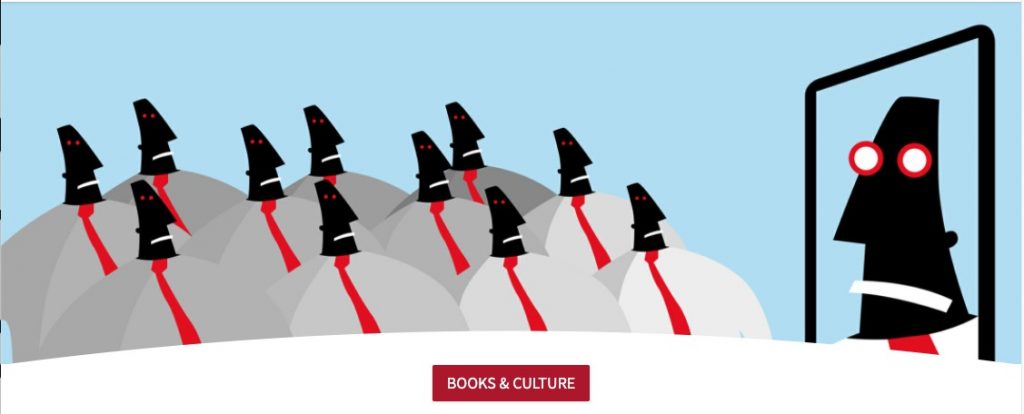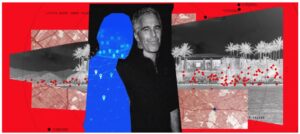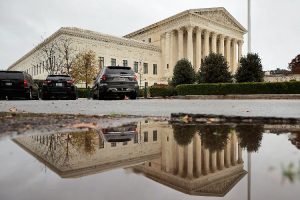
The current wave of cultural Marxism and postmodernism (amounting virtually to the same thing) that is prominent at our universities now threatens to bleed full-bore into our mainstream culture. This has caused more than one observer to liken the current American scene to something akin to George Orwell’s dystopian novel Nineteen Eighty-Four. Published in 1947, the book introduced several new concepts into the English language, the most recognizable being the reference to “Big Brother.” Without attempting to summarize a finely filigreed novel, one cannot help but point out some features which possess a certain resonance in the current American scene.
In Nineteen Eighty-Four, Orwell divides the world into two conflicting superpowers perpetually at war with one another. Much of the action of the novel takes place in Oceania, whose capital is London. Authority is exercised by the Ministry of Truth, which instructs people what to think and also invents most of the country’s art; the Ministry of Peace, which runs the military; the Ministry of Plenty, which runs the economy; and the Ministry of Love, which runs the prisons. Endless wars keep the people busy and focussed, and the thought police aggressively pursue people who commit, or are alleged to commit, thought crimes.
In Oceania, words lose their conventional meanings, or rather, they assume their opposite meanings. For example, war is peace, freedom is slavery, and ignorance is strength. A faceless enemy is constantly held up for repudiation. Periodically the regime orders two minutes of hate, or even a hate week. Nowadays, we have more up to date perversions of the truth, such as, for example, the alleged non-existence of sexual differences or the inversion of racial superiority. Still, the similarities are too obvious not to strike a responsive chord.
Orwell was also the author of another, perhaps even more famous book, Animal Farm, which offered the most telling aphorism: “All animals are equal, but some are more equal than others.” The recent conduct of various American politicians during the current lockdown provides a positively up-to-date rendition of this concept, not to mention the twitterings over inequality (or now, as Madame Harris would have it, “inequity”) put forth by precisely the people whose assets are 10 orders of magnitude or more greater than the public they profess to instruct and who—as the Clintons among others have demonstrated—have absolutely no plans to divest themselves of even a modest portion of their wealth.
It may surprise some to know that George Orwell came by these ideas through long and committed militancy in the British socialist movement, to which he belonged in one sense or another to the very end of his life. Although some neoconservatives have attempted to co-opt Orwell or rather, Orwell’s ghost, in fact he was always a man of the Left, which makes a fuller study of his writings worthwhile for anyone regardless of one’s politics. The best place to begin is to take a deep dive into an omnibus volume of his Essays (Volume 242 in Everyman’s Library, published in the United States by Alfred A. Knopf). At first glance this door-stopper is a bit intimidating—a good 1400 pages of closely-printed type.
Yet few books contain more solid political and cultural wisdom. Orwell was a deeply cultured man, widely traveled and well-read, and willing to take on a range of subjects. It is perhaps no exaggeration to say that reading these Essays amounts to a graduate seminar in Anglo-American culture and politics of the type once (alas, no more!) on offer at most American universities.
Who Was Orwell?
Orwell (real name: Eric Blair) was born in 1903 in British India, where his father was an imperial civil servant. Educated first at home, he was sent off at an early age to England and subsequently to a private boy’s school. He won a scholarship to Eton but his performance there was not sufficient to win a scholarship to university, so instead he joined the Indian Imperial Police. After five years in Burma (then an administrative division of British India) he returned to England and began to pursue a career as a writer.
Orwell’s early writings are boldly reflective of personal experience. He took odd jobs, working for a time as a dishwasher in several Paris and London restaurants, eventually chronicling his impressions in Down and Out in Paris and London (1933). The following year he published Burmese Days, a novel which produced a devastating critique of the impact of British imperialism, not merely on its subjects but also on its practitioners. About that time he also joined the Independent Labour Party. In 1937 he was sent by the Left Book Club (an institution whose enormous role in inter-war Britain is hard to imagine today) to investigate poverty and unemployment in the British midlands, eventually recast in The Road to Wigan Pier (1937) .
In the north of England Orwell came face to face for the first time with the reality of British socialism, or rather, with British socialists. “Socialism” and “Communism,” he discovered, “draws towards them with magnetic force every fruit-juice drinker, nudist, sandal-wearer, sex-maniac, Quaker, ‘Nature cure’ quack, pacifist and feminist in England.” Socialist ranks—as opposed to the working class itself—he found dominated by middle-class individuals who “while theoretically pining for a classless society, cling like glue to the fragments of social prestige.”
As for left-wing politicians and publicists, he argued in another place, “the majority . . . are people who earn their livings by demanding something they don’t really want.” It amounts to a small miracle that The Road to Wigan Pier was commissioned and published by the Left Book Club, although it must have provoked considerable discomfort among its subscribers.
At the outbreak of the Spanish civil war in 1936, Orwell decided to volunteer for the International Brigades and was wounded at a battle near Huesca, and eventually invalided out to England. But during his brief time in Spain he discovered certain unmentionable truths. In British left-wing circles the battle for Spain supposedly was a confrontation between democracy and fascism—indeed, that is what conventional history books claim to this very day. In Spain Orwell discovered, however, the sinister role of the Soviet Union in this enterprise. Its purpose there, he witnessed, was not to further a social revolution but to suppress it, since Moscow had other fish to fry (namely, not to frighten the French, with whom the Soviets hoped to build a Popular Front and forge a military alliance). Inasmuch the Russians were the only country (except for Mexico) provisioning the Republic with arms, their influence over the government there was overwhelming.
In Barcelona, he later wrote in Homage to Catalonia (1938), he witnessed “forcible suppression of [other] political parties, a stifling censorship of the press, and mass imprisonment without trial.” Workers’ militias were being dismantled, the old hierarchies in the army officer corps were being restored. Local Communists and their Soviet minders were building an “ordinary bourgeois state, with, in addition, a reign of terror to preserve the status quo.” Needless to say, this was precisely the opposite of the version propagated by the Soviets themselves and conveyed by their ideological transmission belts near and far, most especially the British left-wing weeklies and the mainstream Labour party.
Because of his wound in Spain he was declared unfit for military service when Britain declared war in 1939 and went instead to work for the Indian Service of the British Broadcasting Company. At the same time he was a prolific contributor to various British weeklies and to the Socialist daily Tribune. At a time when Britain was fighting for its very existence against the Nazis, Orwell found himself thinking a great deal about his country and what it represented. In his columns and articles he revealed himself to be an unapologetic English patriot. But patriotism, he explained, had nothing to do with conservatism.
I grew up in an atmosphere tinged with militarism [he wrote] To this day it gives me a faint feeling of sacrilege not to stand to attention during ‘God Save the King’ [the British national anthem]. That is childish, of course, but I would sooner have that kind of upbringing than to be like the left-wing intellectuals who are so ‘enlightened’ that they cannot understand the most ordinary emotions—the spiritual need for patriotism, and the military virtues, for which, however little the boiled rabbits of the left may like them, no substitute has yet been found.
He expanded on this concept in a book-length essay entitled “The Lion and the Unicorn” (the subtitle, interestingly is “Socialism and the English Genius”), where he takes even sharper aim at his quarry. “The really important point about the English intelligentsia,” he writes, “is their severance from the common culture of the country.”
In intention at any rate, the English intelligentsia are Europeanized. They take their cooking from Paris and their opinions from Moscow. In the general patriotism of the country they form a sort of island of dissident thought. England is perhaps the only great country whose intellectuals are ashamed of their nationality. It is a strange fact, but unquestionably true, that almost any English intellectual would feel more ashamed of standing at attention during ‘God Save the King’ than stealing from a poor box . . . Unlike [the English intelligentsia], the common people have never indulged in power worship.
England, he concluded, will never recover its greatness “until patriotism and intelligence come together again.”
Orwell’s experience in war—both in Spain and in Britain itself—led him to speak clearly and uninhibitedly of the importance of masculine virtues, of courage and endurance. He was openly anti-feminist and homophobic. He even referred disrespectfully to homosexuals as “Nancy boys”—something that would be unthinkable in today’s polite society. He would have agreed with the observation of Evelyn Waugh, a writer whose values he would otherwise reject, who once tartly observed that gay writers like Christopher Isherwood and W. H. Auden, having spent the entire 1930s beating the drum against fascism, “disappeared [to then neutral America] at the first squeak of the air-raid siren.”
Wartime Orwell, the Patriot
Some of the best pieces in this volume were written during the Second World War. They amount to a defense of British culture and identity. There is a long essay on Rudyard Kipling, the poet of British imperialism. (“I worshipped Kipling at 13, loathed him at 17, despised him at 25, and now again rather admire him . . . The imperialism of the [1880s] was sentimental, ignorant and dangerous, but it was not entirely despicable.”)
Kipling’s outlook, he explained, was “pre-Fascist. He still believes that pride comes before the fall and that the gods punish hubris.” Kipling identified with the colonial class, but also with something missing from the more “enlightened”—“a sense of responsibility.” In contrast, the “anti-imperialists” in countries like Britain “are at bottom a sham, because they make it their business to fight against something they really do not wish to destroy.”
He defended English working-class tastes: “dog-races, football pools, Woolworths, the pictures [the cinema], Gracie Fields, Wall’s ice cream, potato crisps, celanese stocking, dart-boards, pin-tables, cigarettes, cups of tea, and Saturday evenings in the four ale bar.” While unsure how long it might last, he avowed “it was a good civilization while it lasted and people who grow up in it will carry some of their gentleness and decency into the iron ages that are coming.” He even dared to write a defense of English cooking—in the cooking of those days!
It bears emphasis once again that Orwell was not a conservative. Far from it. Indeed, in “The Lion and the Unicorn” he positively unloads on the English ruling elite—the “Blimps” as they were then called. Britain he regarded as “the most class-ridden country under the stars. It is the land of snobbery and privilege, ruled largely by the old and the silly—a family with the wrong members in control.” On one point, however, he was willing to concede the British aristocracy some merit—“in time of war they are ready enough to get themselves killed . . . That could not happen if these people were the cynical scoundrels they are sometimes prepared to be.”
There are several quirks to his thinking which sound odd today. He was firmly anti-Zionist. But unlike many opponents of Israel today, he cannot be accused of anti-Semitism, a subject on which he wrote often and intelligently. He was outspoken in advocating that Britain open itself to 100,000 refugees from the Holocaust, and urged the Dominion to exceed that number—which was, at any rate, intellectually coherent. He believed that the British standard of living was dependent on the existence of the empire (which explained, among other things, why he was unimpressed by the various “anti-imperialist” vaporings of the British Left) but he likewise seems not to have realized that empires rarely pay. In fact, of course, the British standard of living has risen dramatically since the country’s withdrawal from Africa and all the territories east of Suez.
The most important point in the entire book might well be this: “Patriotism has nothing to do with conservatism. It is devotion to something that is changing but is felt to mystically be the same.” Writing in 1940, he insisted that what had kept England going during the previous year was “no doubt, some idea of a better future, but chiefly the atavistic notion of patriotism. For the last twenty years the main object of the English left-wing intelligentsia has been to break this feeling down, and if they had succeeded, we might be watching SS men patrolling the London streets at this moment.”
At a time when statutes of America’s Founders are being torn down by mobs (often with the tacit and sometimes open approval of our cultural elites), when the mayor of the District of Columbia suggests the need to either dismantle or “recontextualize” the Washington and Lincoln monuments in the nation’s capital, and when the United Nations, Davos, UNESCO and the World Health Organization are seen as more legitimate sources of authority than our own elected officials, Orwell—with all of the differences between his time and ours—speaks to us with authority and with renewed resonance.




Inspiring words from a brave young man. He’s fed up. Who can blame him.
Give it 6 minutes:
https://153news.net/watch_video.php?v=62W7WK3B9X3W
I hesitate to put up Fulford’s recent report, but in the name of revealing what may not be too popular, here it is….(always with a grain of salt)
December 14, 2020
West faces Moment of Truth as Khazarian Mafia Surrenders to the Chinese
By Benjamin Fulford Weekly Reports
The Western world is facing its greatest crisis, possibly ever, as its ruling elite has surrendered to China. Either the West removes this elite from power and creates a united front or Westerners will become Chinese slaves working under Khazarian Mafia sub-contractors. It is this battle involving the Chinese and the West that is the real reason why the U.S. Presidential election result remains in limbo.
Before we dig further into this it’s important to point out that given the current circumstances it’s looking like a mathematical certainty Donald Trump will be the last President of the United States Corporation in its present form, multiple sources agree.***** (((They also indicate he may have a plan up his sleeve to resolve the situation favorably, only time will tell.)))*****
To better understand the current situation let’s take a look at the numbers published by the U.S. Treasury Department on December 10th. https://www.fiscal.treasury.gov/files/reports-statements/mts/mts1120.pdf
They show the U.S. spent $6.5 trillion in the fiscal year ending on September 30th, but could only do this by borrowing $3.1 trillion. The deficit for October, the first month of fiscal 2021, was up 111% year on year to $284 billion.
Overall, counting decades of fiscal and trade deficits as well as un-financed pension obligations, the U.S. has debt well over $200 trillion or well over 20 times GDP if you do not count debt-financed GDP. So if you earn $10,000 a year, but spend $20,000 a year thanks to your credit card, and have over $200,000 in debt, you would have to spend your entire real income for over 20 years (and starve to death in the meantime) in order to pay your debt.
Neither Donald Trump nor anyone else can fix that using conventional means, which supports the concept of a reset to resolve the financial problems of numerous nations whose debt burden was created under the central bank fiat currency system.
That is why the current owners of the U.S. Corporation (mostly European aristocrats based in Switzerland) offered a Joe Biden, Kamala Harris slave presidency to the Chinese in exchange for a roll-over of their debt. Even that was not enough, so they offered Australia, New Zealand, Japan, the Korean Peninsula, and ASEAN to the Chinese as well.
If you don’t think the mostly Swiss-based owners of the U.S. Corporation have surrendered to the Chinese, take a look at this news item (and please support the Guardian while you are at it) that reads in part:
“a secret deal between Switzerland and China that allowed Chinese security officials access to the country at Swiss taxpayers’ expense has been revealed.” https://www.theguardian.com/world/2020/dec/09/secret-deal-reveals-chinese-spies-free-rein-switzerland
Basically, it says the Swiss have given Chinese agents a carte blanche to do whatever they want in Switzerland. This means they can kill any of the Davos elite there who do not do their bidding. Remember, these are the elite who control 90% of the transnational corporations.
Now you can understand why the current owners of the bankrupt United States Corporation have sold the American people down the river. They have offered Chinese troops the right to…
This will knock socks off:
https://legalinsurrection.com/2020/12/report-leaked-database-reveals-nearly-2m-ccp-members-working-all-over-the-world/
The power hungry elite are sick in the head.
https://www.youtube.com/watch?v=iKXujRnWmeA
The Supreme Justices are terrified that any change in the 2020 Election will be blamed on them. Therefore they ignore any case that comes before their held high noses.
Trump will just have to suck it up that he was cheated out of the White House. America is the land of professional cheating on a massive scale. Its also the land of many, many hoaxes and frauds.
Is the US the land of Equal Justice under the Law? NO…its makes the banana republics blush.
Will anything change? At this point its very doubtful.
Attachment
LOL
Klaus Schwab gets a taste of his own medicine.
https://www.armstrongeconomics.com/armstrongeconomics101/economics/klaus-schwab-gets-a-taste-of-his-own-medicine/
EVERYTHING about the US is corrupt.
https://justthenews.com/politics-policy/elections/us-supreme-court-rejects-texas-challenge-election
2nd post is disappearing when I hit the button???
The “Biden” “Squad” democratic party:
“We know that no one ever seizes power with the intention of relinquishing it. Power is not a means; it is an end. One does not establish a dictatorship in order to safeguard a revolution; one makes the revolution in order to establish the dictatorship. The object of persecution is persecution. The object of torture is torture. The object of power is power.”
from George Orwell’s 1949 novel “1984”
Some of the truth about Alexandria Ocasio-Cortez:
She is an actress, a performer, chosen out of 10,000 other audition candidates after her brother submitted her name while she was working as a bartender.
Some people involved in choosing and controlling her are:
“BrandNewCongress.org” and Cenk Uyger of the Young Turks. They ran the campaign that turned AOC into a “brand” to win a congressional seat.
“Run an insurgent, anti-establishment campaign to become the establishment.” Spokesman for “Brand New Congress”
“What we need to do is take over the democratic party…to save the soul of the democratic party. We’re gonna run 100’s of candidates. We want to replace congress. It is way past time that progressives exercise their power in this country”
Cenk Uyger
From Mr Reagan:
The Brains Behind AOC Alexandria Ocasio-Cortez (23 mins)
https://www.youtube.com/watch?v=1h5iv6sECGU
And I used to pay attention to Cenk….what world was that in? Something happened to him after he left the MSM (or is he still there?….I wouldn’t know). He reminds me of what happened to Olbermann once he left MSNBC….he seemed to go off the reservation. He did have some worthwhile rants at MSNBC, but now, he sounds like he speaking from inside a padded cell before taking his meds. Is the real virus called Dem-vid 2020?
“The Brains Behind AOC”…..Those brains must be behind her, since they are absolutely not inside her skull…reminds me of the Emu who apparently has eyes larger than it’s brain.
Didn’t know Cenk or even Tom Brady until 2016 🙂 I was far off the grid for a long time. Yeah, Olbermann seems quite psychologically challenged. It is just a job but he is like one of those late night preachers.
The other part of the info is:
“AOC does not make policy decisions and defers to her “team’s” decisions. Videos are available of “team” members stating policy and AOC parroting exact statements. When she is “off script” her obvious lack of knowledge and procedure makes her sound like a fool…”I am the boss.” The Green New Deal was drafted in one weekend without AOC present.”
I’ve studied history and human behavior for decades, not academically but rather from a deep interest. Since there is skeletal evidence of sentient life from 300 or more MILLION years we are just a recent phenomena IMO.
The advent of the church state seems to be a clear transition in our natural evolutionary progress. The intent was as most despots and controlling forces push for, to gain power and control using fear, intimidation, and various “threats” to humans.
In a little booklet I wrote I call this method Demons and Redemption. Think I linked my song about it here in a previous post. The basic idea is religion, governments, corporations, universities all present “demons” of Devils, Commies, hygiene issues, and ignorance. And of course all offer “redemption” for a price with the continuing up grade to all the issues to fear.
This clever ruse was aimed at taking away sovereignty and autonomy of people, creating the “victim” mind set and dependency on others. It very evident that this was used this year.
A seasonal flu shows up, a bit stronger then usual, and it is “sold” as a viral pandemic, even though in March the event was down graded to a seasonal flu by WHO, CDC and European counterparts. The focus of the citizens went from a fantastic economy, no new wars, low crime, etc. to FEAR.
The numbers just don’t add up. An average of about 2.5 to 2.8 million people die every year in the US from all reasons. As of September it was about 2.5 million with no logical validation of ANY pandemic.
As you well know, the word spin of “Madison Ave” is no accident. When the Intercontinental Ballistic Missles got renamed “Peace Keeper” it was the Orwellian New Speak. These days weather went to Global Cooling to Climate change. And in the same way, the use of the RT-PCR “tests” that only look for genetic material and by their makers own desire, should not be used for diagnostic efforts, are giving false positives and creating “cases.”
There are moments in a person’s life if they are, as the Native American’s offer, “being awake in one’s dream” that certain events, songs, books, people, etc. ring that Ah Ha bell. Like the first time I moved a cursor around a MacPlus screen, that GUI was something I never knew existed, but always wanted. The same for Orwell’s 1984. It simply astounded me because something inside said this is important, don’t forget it.
And here we are… :-/